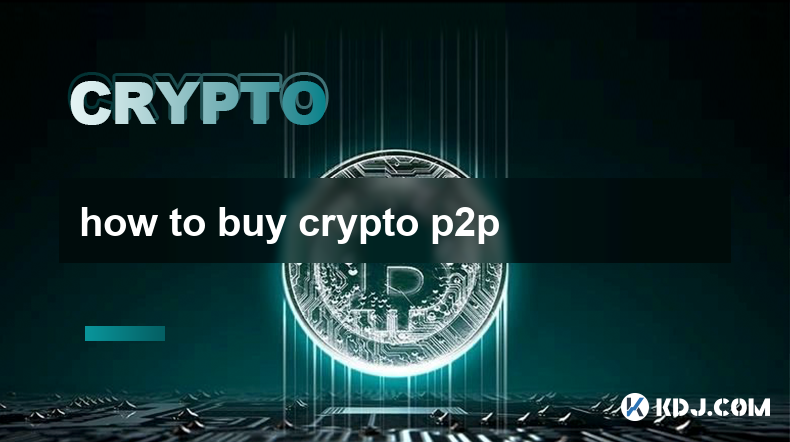-
 Bitcoin
Bitcoin $105,660.2309
1.97% -
 Ethereum
Ethereum $2,552.7306
6.93% -
 Tether USDt
Tether USDt $0.9997
-0.04% -
 XRP
XRP $2.3798
1.13% -
 BNB
BNB $650.3328
1.80% -
 Solana
Solana $168.8054
2.04% -
 USDC
USDC $0.9996
-0.01% -
 Dogecoin
Dogecoin $0.2251
2.44% -
 Cardano
Cardano $0.7419
1.85% -
 TRON
TRON $0.2671
1.61% -
 Sui
Sui $3.8365
1.98% -
 Chainlink
Chainlink $16.0850
6.13% -
 Avalanche
Avalanche $22.3524
1.99% -
 Stellar
Stellar $0.2865
1.54% -
 Hyperliquid
Hyperliquid $26.6074
2.66% -
 Shiba Inu
Shiba Inu $0.0...01463
1.94% -
 Hedera
Hedera $0.1953
2.94% -
 UNUS SED LEO
UNUS SED LEO $8.7047
0.59% -
 Bitcoin Cash
Bitcoin Cash $394.8262
0.57% -
 Toncoin
Toncoin $3.0384
-0.37% -
 Litecoin
Litecoin $98.1332
0.92% -
 Polkadot
Polkadot $4.6385
1.93% -
 Monero
Monero $347.1478
1.61% -
 Bitget Token
Bitget Token $5.1577
0.68% -
 Pepe
Pepe $0.0...01330
2.85% -
 Dai
Dai $0.9998
0.00% -
 Pi
Pi $0.7325
0.06% -
 Ethena USDe
Ethena USDe $1.0003
-0.01% -
 Aave
Aave $264.9425
21.69% -
 Uniswap
Uniswap $5.9747
3.73%
how to buy crypto p2p
Peer-to-peer cryptocurrency trading offers advantages like reduced fees, enhanced privacy, and the ability to negotiate trading terms directly with other individuals.
Jan 29, 2025 at 11:13 pm

Key Points:
- Understand the concept and benefits of peer-to-peer (P2P) cryptocurrency trading.
- Familiarize yourself with the different types of P2P cryptocurrency exchanges.
- Learn the step-by-step process of buying crypto P2P.
- Discover best practices and security considerations for safe P2P trading.
- Explore frequently asked questions related to P2P cryptocurrency trading.
How to Buy Crypto P2P: A Comprehensive Guide
1. Understanding P2P Cryptocurrency Trading
Peer-to-peer (P2P) cryptocurrency trading involves buying and selling cryptocurrencies directly with other individuals without relying on intermediaries or centralized exchanges. It offers several advantages, including:
- Lower fees: P2P transactions typically have lower fees than centralized exchanges.
- Increased privacy: P2P trading often involves private messaging and over-the-counter deals, ensuring greater anonymity.
- Flexibility: P2P platforms allow traders to negotiate prices, payment methods, and trade terms directly with each other.
2. Types of P2P Cryptocurrency Exchanges
Various P2P cryptocurrency exchanges facilitate P2P trading. Some popular options include:
- LocalBitcoins: A pioneer in P2P trading, LocalBitcoins connects buyers and sellers in a specific geographic area.
- Paxful: Paxful is a global P2P platform offering multiple payment options and advanced security features.
- Binance P2P: Binance, one of the largest cryptocurrency exchanges, provides a dedicated P2P marketplace with a wide range of cryptocurrencies.
- Coinbase Commerce: Coinbase allows businesses to accept cryptocurrency payments through its P2P platform.
3. Step-by-Step Guide to Buying Crypto P2P
Step 1: Choose a P2P Exchange
Select a reputable P2P exchange based on its security measures, trading volume, and user reviews.
Step 2: Create an Account
Sign up for an account on the chosen P2P exchange and complete the necessary verification process.
Step 3: Find a Suitable Seller
Search for sellers who offer the desired cryptocurrency at a fair price. Consider checking the seller's reputation, number of successful trades, and payment methods accepted.
Step 4: Initiate a Trade
Contact the seller via the platform's messaging system or designated chat room. Confirm the terms of the trade, including the price, amount, and payment method.
Step 5: Make Payment
Transfer the funds to the seller according to the agreed-upon payment method. Ensure you only release the payment once you receive confirmation that the cryptocurrency has been sent to your wallet.
Step 6: Receive Crypto
Once the seller confirms the payment, the purchased cryptocurrency will be transferred to your P2P exchange wallet or directly to a designated external wallet address.
4. Best Practices and Security Considerations
- Verify Sellers: Diligently check the seller's profile and feedback before initiating a trade.
- Use Escrow Services: Consider using escrow services offered by some P2P exchanges to ensure secure transactions.
- Be Aware of Scams: Be wary of phishing scams and other fraudulent activities. Never share sensitive information with unknown individuals.
- Store Crypto Safely: Store your purchased cryptocurrency in a secure hardware wallet or a reputable custodial exchange.
5. FAQs Related to P2P Cryptocurrency Trading
Q: What are the advantages of P2P cryptocurrency trading over centralized exchanges?
A: P2P trading offers lower fees, increased privacy, and flexibility in trading terms.
Q: What payment methods are typically supported in P2P cryptocurrency trading?
A: Common payment methods include bank transfers, mobile money, cash deposits, and gift cards.
Q: How can I ensure the safety of my P2P cryptocurrency transactions?
A: Verify sellers, use escrow services, be aware of scams, and store your crypto securely.
Q: Are there any other benefits to P2P cryptocurrency trading aside from those mentioned?
A: P2P trading can provide access to a wider range of cryptocurrencies and regional payment options not available on centralized exchanges.
Q: What are some of the challenges associated with P2P cryptocurrency trading?
A: Challenges may include finding reliable sellers, mitigating the risk of scams, and understanding the complexities of different payment methods.
Disclaimer:info@kdj.com
The information provided is not trading advice. kdj.com does not assume any responsibility for any investments made based on the information provided in this article. Cryptocurrencies are highly volatile and it is highly recommended that you invest with caution after thorough research!
If you believe that the content used on this website infringes your copyright, please contact us immediately (info@kdj.com) and we will delete it promptly.
- DON token is picking up steam amid the meme coin fireworks as it trades below $0.01
- 2025-05-20 11:35:12
- The Best Real Money Online Casinos in 2023 (Updated)
- 2025-05-20 11:35:12
- SEC Chairman Paul Atkins Wants to Let Registered Broker-Dealers Custody and Trade Cryptocurrencies
- 2025-05-20 11:30:12
- Qubetics Tops the List of Best Tokens to Buy in 2025 as the Crypto Market Shifts to Long-Term Usability
- 2025-05-20 11:30:12
- Big Names Are Breaking Out — But a Political Meme Coin Is Turning Heads
- 2025-05-20 11:25:13
- JP Morgan Predicts Bitcoin Will Outperform Gold in 2025
- 2025-05-20 11:25:13
Related knowledge

What is Ethereum’s Slashing mechanism and how to punish malicious behavior?
Feb 20,2025 at 03:08am
Key PointsOverview of slashingDifferent types of slashing in EthereumIncentives and consequences of slashingIdentifying and reporting slashed validatorsOngoing discussions and potential improvementsEthereum's Slashing Mechanism: Punishing Malicious BehaviorEthereum's slashing mechanism is an essential tool for ensuring network security and punishing mal...

What is the verifier node of Ethereum and how to become a verifier?
Feb 19,2025 at 06:00pm
The Verifier Node of Ethereum: A Comprehensive GuideKey Points:What is a Verifier Node?How to Become a Verifier NodeResponsibilities and Rewards of a Verifier NodeMinimum Requirements for Becoming a Verifier NodePotential Difficulties in Running a Verifier Node1. What is a Verifier Node?A Verifier Node is an independent entity on the Ethereum network th...

What is Ethereum’s staking, and how to participate and earn money?
Feb 19,2025 at 04:37pm
Key Points:Understanding Ethereum's Staking MechanismSteps to Participate in StakingBenefits and Rewards of StakingSecurity and Risk ConsiderationsTechnical Requirements and Hardware OptionsPotential Challenges and Troubleshooting TipsFAQs on Ethereum StakingWhat is Ethereum's Staking?Proof-of-Stake (PoS) is a consensus mechanism used in blockchain netw...

What is Ethereum’s DAO (Decentralized Autonomous Organization) and how does it work?
Feb 20,2025 at 03:12am
Key PointsDefinition and Structure of a DAOGovernance and Decision-Making in DAOsBenefits and Use Cases of DAOsChallenges and Limitations of DAOsWhat is Ethereum's DAO (Decentralized Autonomous Organization) and How Does It Work?Definition and Structure of a DAOA Decentralized Autonomous Organization (DAO) is an innovative governance and management fram...

What is Ethereum's multi-signature wallet and how to improve security?
Feb 20,2025 at 02:18pm
Key Points:Understanding the Concept of a Multi-Signature WalletBenefits and Drawbacks of Multisig WalletsRequirements for Setting Up a Multisig WalletStep-by-Step Guide to Generating a Multisig WalletImplementing Strategies for Enhanced Security1. Understanding the Concept of a Multi-Signature WalletA multi-signature (multisig) wallet in the Ethereum e...

What is Ethereum's oracle and how to provide data for smart contracts?
Feb 21,2025 at 01:30am
Key Points:Understanding the concept of oracles in EthereumExploring different types of oraclesDetailed guide on how to provide data for smart contractsAddressing potential challenges and considerationsWhat is Ethereum's Oracle?Oracles are crucial components in the Ethereum ecosystem, enabling smart contracts to access real-world data and off-chain even...

What is Ethereum’s Slashing mechanism and how to punish malicious behavior?
Feb 20,2025 at 03:08am
Key PointsOverview of slashingDifferent types of slashing in EthereumIncentives and consequences of slashingIdentifying and reporting slashed validatorsOngoing discussions and potential improvementsEthereum's Slashing Mechanism: Punishing Malicious BehaviorEthereum's slashing mechanism is an essential tool for ensuring network security and punishing mal...

What is the verifier node of Ethereum and how to become a verifier?
Feb 19,2025 at 06:00pm
The Verifier Node of Ethereum: A Comprehensive GuideKey Points:What is a Verifier Node?How to Become a Verifier NodeResponsibilities and Rewards of a Verifier NodeMinimum Requirements for Becoming a Verifier NodePotential Difficulties in Running a Verifier Node1. What is a Verifier Node?A Verifier Node is an independent entity on the Ethereum network th...

What is Ethereum’s staking, and how to participate and earn money?
Feb 19,2025 at 04:37pm
Key Points:Understanding Ethereum's Staking MechanismSteps to Participate in StakingBenefits and Rewards of StakingSecurity and Risk ConsiderationsTechnical Requirements and Hardware OptionsPotential Challenges and Troubleshooting TipsFAQs on Ethereum StakingWhat is Ethereum's Staking?Proof-of-Stake (PoS) is a consensus mechanism used in blockchain netw...

What is Ethereum’s DAO (Decentralized Autonomous Organization) and how does it work?
Feb 20,2025 at 03:12am
Key PointsDefinition and Structure of a DAOGovernance and Decision-Making in DAOsBenefits and Use Cases of DAOsChallenges and Limitations of DAOsWhat is Ethereum's DAO (Decentralized Autonomous Organization) and How Does It Work?Definition and Structure of a DAOA Decentralized Autonomous Organization (DAO) is an innovative governance and management fram...

What is Ethereum's multi-signature wallet and how to improve security?
Feb 20,2025 at 02:18pm
Key Points:Understanding the Concept of a Multi-Signature WalletBenefits and Drawbacks of Multisig WalletsRequirements for Setting Up a Multisig WalletStep-by-Step Guide to Generating a Multisig WalletImplementing Strategies for Enhanced Security1. Understanding the Concept of a Multi-Signature WalletA multi-signature (multisig) wallet in the Ethereum e...

What is Ethereum's oracle and how to provide data for smart contracts?
Feb 21,2025 at 01:30am
Key Points:Understanding the concept of oracles in EthereumExploring different types of oraclesDetailed guide on how to provide data for smart contractsAddressing potential challenges and considerationsWhat is Ethereum's Oracle?Oracles are crucial components in the Ethereum ecosystem, enabling smart contracts to access real-world data and off-chain even...
See all articles
























































































